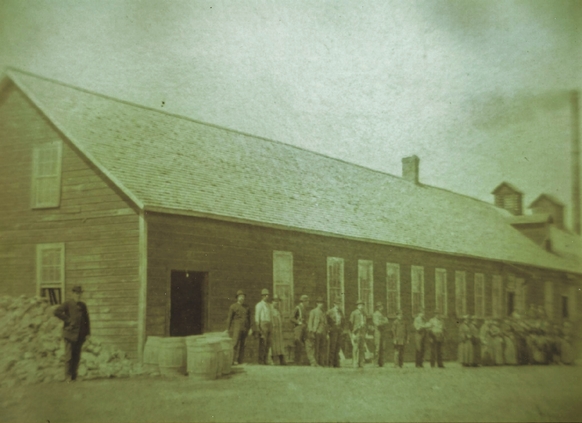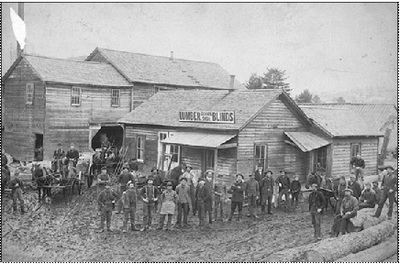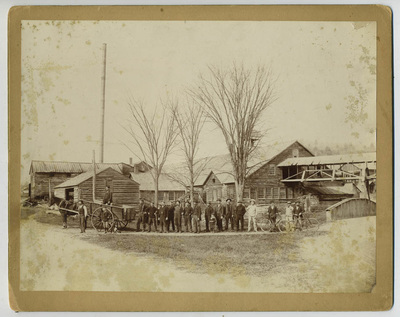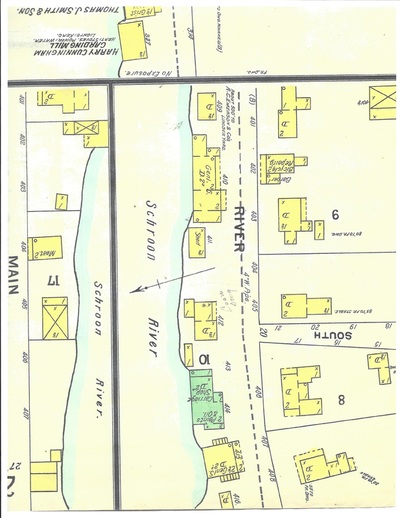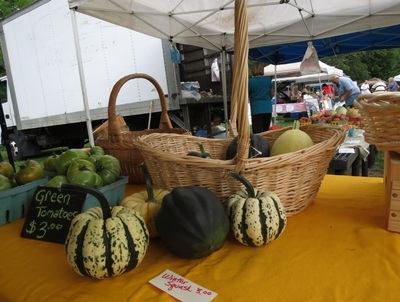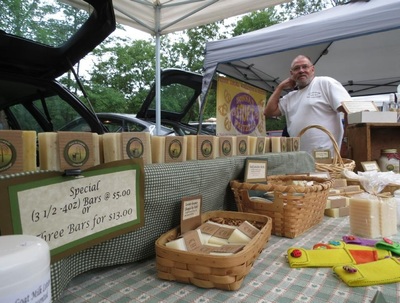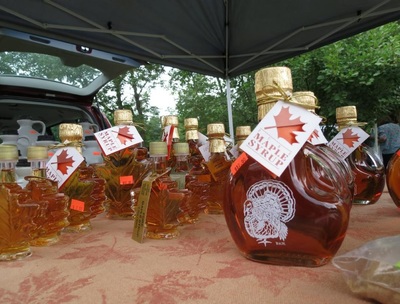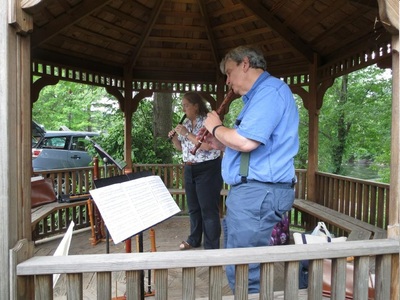Riverfront Farmers Market
182-184 River Street
Sash and Blind Factory Peg Factory Electric Plant for the Trolley Riverfront Farmer's Market |
The Sash and Blind factory, utilizing water power from an early woolen mill dam, was built downstream from the shoe peg factory by John Brill, probably sometime before 1861. Later, it was owned by Gardner T. Lewis, who sold the property to Stephen and Walter Pasco in 1873 with the company name of S. Pasco & Brother. They ran the business until 1896 when it was sold to Delbert E. Pasco and George Davison. The mill burned in 1892 and again in 1899, and was rebuilt each time. The Hudson Valley Railway bought the business in 1903 solely to secure water power privileges from the woolen mill dam to generate electricity for its trolley line. The wood-working business was dissolved. D. E. Pasco later bought the machinery and built a mill on South Street, but that was destroyed by fire in 1907.
The Foster Shoe Peg Factory was started before 1881 by Wyman Flint of Bellows Falls, Vermont in buildings erected by John J. Brill of Wilton. On June 3, 1887 it was taken over by J. R. Foster. "Blue Star" shoe pegs were manufactured from white, yellow and black birch. In 1890, four cords of wood were used to produce 250 bushels of pegs daily. Up to 40 people were employed at one time. Many of the pegs were shipped to Germany for their army boots. The factory closed in 1893 due to a lack of available birch saw logs. The business was then moved to a new factory at Shelburne Falls, Massachusetts. The old peg factory burned in 1898.
The Foster Shoe Peg Factory was started before 1881 by Wyman Flint of Bellows Falls, Vermont in buildings erected by John J. Brill of Wilton. On June 3, 1887 it was taken over by J. R. Foster. "Blue Star" shoe pegs were manufactured from white, yellow and black birch. In 1890, four cords of wood were used to produce 250 bushels of pegs daily. Up to 40 people were employed at one time. Many of the pegs were shipped to Germany for their army boots. The factory closed in 1893 due to a lack of available birch saw logs. The business was then moved to a new factory at Shelburne Falls, Massachusetts. The old peg factory burned in 1898.

